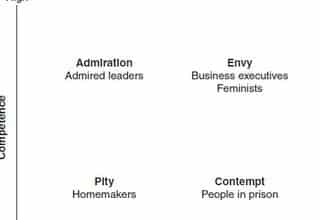If you are not watching The Chris Gethard Show, then I am about to do you a huge favor. This show is unlike any other you have witnessed. On one hand, it has all the makings of your typical talk show—a host, sidekick, announcer, band, live audience, celebrity guest, etc. But it only takes a minute to realize there is nothing typical about it.
Forget about the lack of a monologue. Forget about the host and guest surrounded by the audience who is sitting on the floor, beanbag chairs, and all over the set. Forget about the woman hula-hooping in the background throughout the show for no apparent reason and the guy sitting above the audience wearing only goggles and a bathing suit. To understand The Chris Gethard Show we must discuss its host.
Chris Gethard likes to say, “It’s a talk show where the host has no control over what’s happening.” Similar to a ringleader without any authority, Gethard does his best to exert influence, but suggestions are often ignored. The result in chaotically fascinating and hilarious, and has garnered Gethard a dedicated following…but this was not always the case.
The Chris Gethard Show is the culmination of over 15 years of effort, rejection, and humbling conditions. Gethard initially began this experiment as a weekly stage show in New York. It was a favorite for those “in the know” but this involved a limited number of people. He took a break to do a sitcom, which only lasted a few weeks, and set his mind to bringing the show to television.
On its first pass, most networks either rejected the show or tentatively accepted with significant alterations to Gethard’s vision. Having been part of a failed program that, according to Gethard, was not creatively fulfilling, he decided to air the show on public access. This was a step down (Gethard’s sentiments), but it soon gathered a cult-like underground popularity. It became so big that, after four years, networks were courting Gethard. The Chris Gethard Show is now in its third session on truTV.
Gethard’s experience can be seen as a testament to persistence, or remaining true to one’s core values, or to the power of building a strong base of support. While these all apply, I see his journey as the upside of failure.
The moments of success I’ve had did not lead to as much growth as the moments where I was a failure. When you strike out, if you can remove your ego from the process, you learn who you are, what you have to offer, and what you wanna say… Success is a very nice thing, but failure is where the truth lies.—Chris Gethard
Failure is a prerequisite to the success of any progressive initiative. No breakthrough product or process can exist without risk taking and learning from successive mistakes. For this to be allowed, we need to become failure-tolerant leaders—that rare breed of leader who, through our words and actions, not only accepts failure, but encourages it. Based on extensive research, failure-tolerant leaders strive to:
- readily admit their own mistakes;
- avoid finger-pointing, scapegoating, and finding the “culprit;”
- engage at a personal level with the people they lead;
- create opportunities for people to uncover and analyze failures
- eradicate the destructive, unproductive competitiveness between teams and individuals;
- set boundaries for empowerment;
- instill the idea that failure is not the opposite of success, but its counterpart;
- identify intelligent (versus sloppy) mistakes and consider them to be learning opportunities; and
- reward those who are brave enough to come forward with “bad news.”
For those of us who are not willing to allow mistakes to run wildly through our team, you are in luck. Encouraging failure is not synonymous with laisse faire leadership, nor does it mean you should abandon your supervisory duties. Managing a culture of failure tolerance requires us to be more engaged—quality control, questioning decision making, and continuous process improvement are even more in need when people are allowed to take greater risks.
Chris Gethard once said, “Failure is the fertilizer of success.” If we don’t make it part of our process, no innovative ideas will be brought forth. Fear of being “in trouble” will overrule creativity. And this stagnation will lead to a culture of maintaining versus transforming. As The Chris Gethard Show regular “Human Fish” would muse, “success-induced failure or failure-induced success?” They may not be so different.







